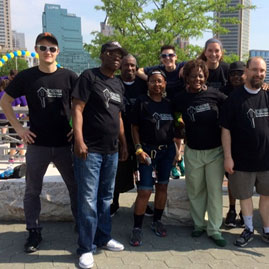Clubhouses, with their exclusive and inclusive atmospheres, go beyond mere social gatherings. They play a pivotal role in community development, acting as catalysts for connection, collaboration, and positive change. In this article, we’ll delve into the multifaceted ways in which clubhouses contribution to community development, creating spaces that not only bind people together but also foster growth on various levels.

Creating Social Hubs
To begin with, at the core of community development is the creation of social hubs, and clubhouses excel at this. Whether physical spaces within neighborhoods or virtual platforms like the Clubhouse app, these hubs become meeting points for residents or like-minded individuals. By providing a shared space for interaction, clubhouses naturally foster a sense of community among diverse individuals.
Facilitating Networking and Collaboration
In addition, one of the primary contributions of clubhouses to community development is their ability to facilitate networking and collaboration. Therefore, business and professional clubhouses, for instance, bring together individuals from various industries, fostering connections that can lead to collaborations, mentorships, and business opportunities. This interconnectedness strengthens the fabric of the community and promotes economic development.
Cultural and Artistic Expression
Clubhouses often become canvases for cultural and artistic expression. Community-based clubhouses may host art exhibitions, cultural events, or performances that showcase the diverse talents within the community. By providing a platform for artistic expression, these clubhouses contribute to the cultural enrichment of the community and create a shared sense of identity.
Knowledge Sharing and Education
Many clubhouses serve as hubs for knowledge sharing and education. From book clubs to workshops and seminars, these spaces become arenas where community members can share expertise, learn new skills, and enhance their knowledge. This commitment to continuous learning contributes to the intellectual growth of the community and empowers individuals to pursue personal and professional development.
Supporting Local Initiatives
Community clubhouses often become advocates for local initiatives. This can include support for local businesses, environmental initiatives, or social causes. By rallying community members around common goals, clubhouses contribute to the development of a sustainable and socially responsible community, fostering a sense of collective responsibility.
Addressing Social Issues
Clubhouses have the potential to become platforms for addressing social issues within a community. Discussions, forums, and awareness campaigns organized within these spaces can bring attention to important matters, promoting empathy and understanding. Hence, by addressing social issues head-on, clubhouses contribute to a more compassionate and inclusive community.
Youth Engagement and Development
Clubhouses provide a unique space for youth engagement and development. Whether through sports clubs, educational programs, or mentorship initiatives, these spaces empower young individuals to find their voice, develop skills, and become active contributors to the community. This investment in youth development is key to ensuring the long-term sustainability of the community.
Encouraging Civic Participation
Moreover, community clubhouses often become hubs for civic engagement. By hosting town hall meetings, community forums, or political discussions, these spaces encourage residents to actively participate in shaping the future of their community. Hence, this sense of involvement is crucial for the democratic development of a community.
Building Social Capital
The social connections formed within clubhouses contribute to the development of social capital within a community. Social capital refers to the networks, relationships, and shared values that foster cooperation and reciprocity. Therefore, by building strong social capital, clubhouses enhance the overall well-being and resilience of the community.
Celebrating Diversity and Inclusion
Clubhouses, when well-managed, celebrate diversity and inclusion. By fostering an environment where individuals from different backgrounds feel welcome, these spaces contribute to a more vibrant and tolerant community. This celebration of diversity not only enriches the cultural tapestry but also promotes a sense of unity among community members.
Conclusion
In conclusion, clubhouses stand as dynamic contributors to community development, weaving together the threads of social, economic, and cultural growth. Whether physical or virtual, these spaces play a crucial role in fostering connections, empowering individuals, and catalyzing positive change within communities. As we continue to recognize the transformative power of clubhouses, we embrace the potential for stronger, more resilient, and thriving communities that stand united in their pursuit of shared development.










